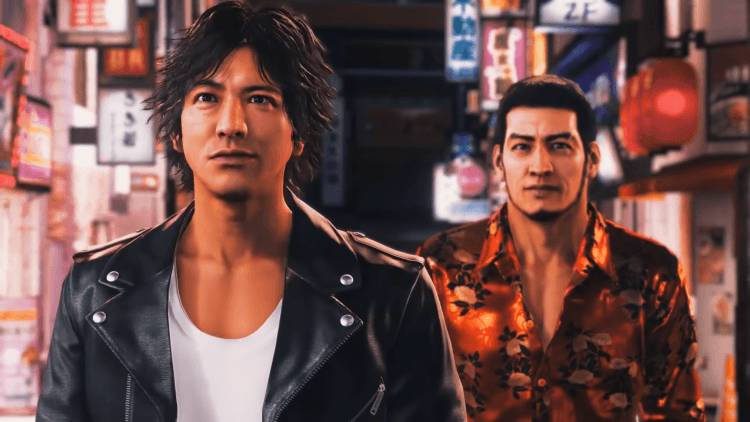I love the Yakuza series. The blend of wacky antics with melodramatic story moments creates an experience that you can’t get with most other games. When Sega announced Judgment, I was incredibly excited. They were taking the formula of one of my favorite franchises and infusing it with the DNA of a crime drama. It sounded like the perfect mixture, and after making my way through Judgment‘s roughly 30-hour storyline, it’s safe to say that the spinoff doesn’t disappoint, standing toe to toe with Kazuma Kiryu’s best adventures.
Game Name: Judgment
Platform(s): PlayStation 4
Publisher(s): Sega
Developer(s): Ryu Ga Gotoku Studio
Release Date: June 25, 2019/June 21, 2019 (Digital)
Price: $59.99
Judgment is a Yakuza game in all but name, featuring all the trappings of a traditional Yakuza entry while also building upon the foundation with improved combat, a host of new minigames and activities, and numerous new gameplay features that fit the game’s detective theme. As Takayuki Yagami or “Tak” as his friends call him, you’ll work your way through 13 chapters as you hunt down a serial killer that’s been picking off yakuza and gouging their eyes out. It’s a grisly premise that’s definitely darker than a regular Yakuza game, and thanks to the game’s assortment of entirely original characters, Judgment provides players with a look at a side of Kamurocho that they don’t normally get to see. While mainline Yakuza games are no strangers to crime, Judgment relishes in exploring the dark happenings of Kamurocho alleyways, resulting in a courtroom drama that kept me on the edge of my seat the entire way through.
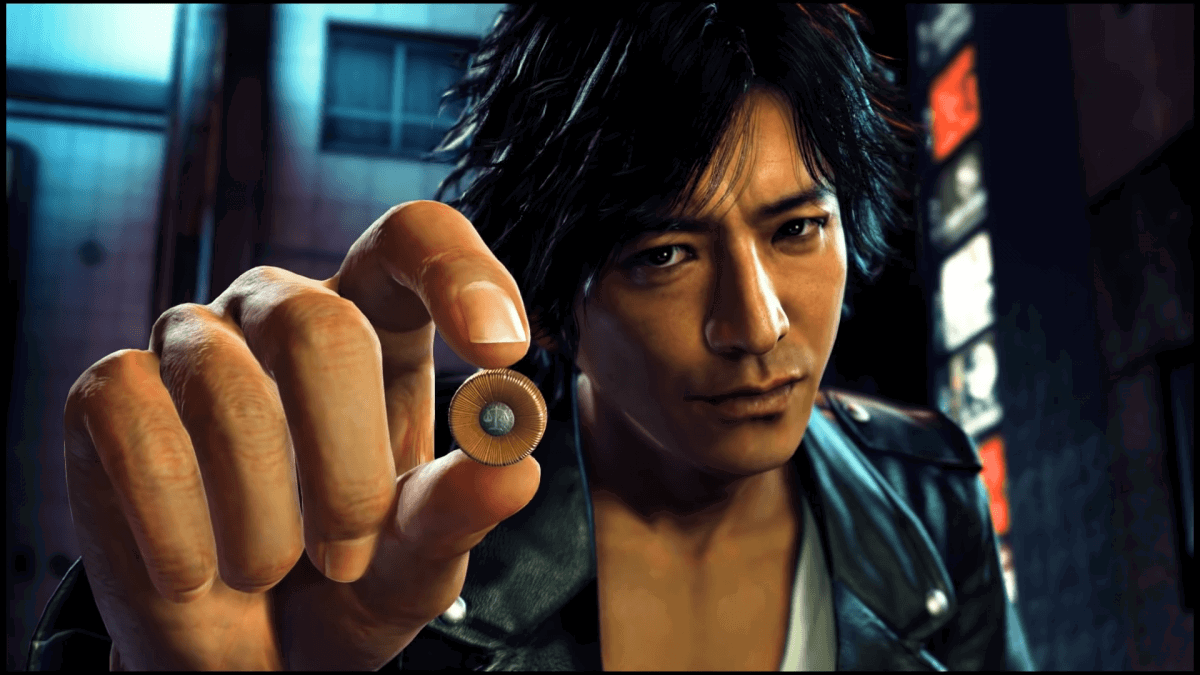
Like other Yakuza games, you’ll be spending a lot of time brawling with thugs and lowlifes as you make your way through the busy streets of Kamurocho. Judgment’s combat, however, is dramatically improved when compared to its predecessors, marrying the fluid animations of the Dragon Engine Yakuza games like Kiwami 2 and Yakuza 6 with the combat styles of Kiwami and Yakuza 0 while also adding a unique flair of its own into the mix. The end result is the best combat system of any Yakuza game and one that made me look forward to random street encounters rather than dreading them, thanks to the variety of my arsenal and the meaningful rewards I would receive.
Yagami has access to two distinct styles that can be freely switched between during combat. Crane style is designed for taking on groups, packing a wide array of sweeps and kicks that hit multiple foes at once. Tiger style is meant for one on one encounters, dishing out great damage to single targets while being especially good at breaking guards. Both styles start off relatively simple and interchangeable with one another, but as I acquired more skills throughout my playthrough, they quickly grew into their own entities with unique abilities and benefits.
Yagami is more agile than Kiryu, and this is made incredibly apparent through his moveset, with him relying on quick thinking and acrobatics rather than raw physical strength. He’ll spin, flip, and even jump off walls to defeat his enemies. Wall jumping is a new combat mechanic that can be performed by sprinting toward a wall and using an attack as you bounce off of it, hitting nearby enemies with a devastating attack. Yagami can also leap over enemies and punch, kick, or flip them, depending on the situation. It’s the variety and flexibility that Yagami’s moveset allows for that makes Judgment‘s combat system so enjoyable. It’s never just basic punching and kicking; there’s always a plethora of actions available at any given moment, and there’s a layer of strategy involved, especially when trying to maintain a full EX gauge.
EX is Judgment‘s take on “heat” from mainline Yakuza games, and it functions in the exact same way. Hitting or taunting enemies will fill a meter that can be expelled to perform extremely powerful contextual attacks called “EX Actions” or enter a state entitled “EX Boost” which aptly boosts Yagami’s health and damage output and mitigates incoming damage, including mortal wounds. Mortal wounds are a new feature entirely unique to Judgment. If Yagami gets hit with a particularly powerful attack (clearly telegraphed by an enemy having a glowing aura), or if he is shot or stabbed, your health bar will be damaged irreparably. Healing items cannot recover damage sustained from a mortal wound, and you’ll have to take Yagami to a doctor or use a special medical kit item to undo the damage. Because EX opens up so many avenues during combat, managing the EX meter and knowing when and how to use certain EX actions can make all the difference in Judgment, especially during tougher boss fights.
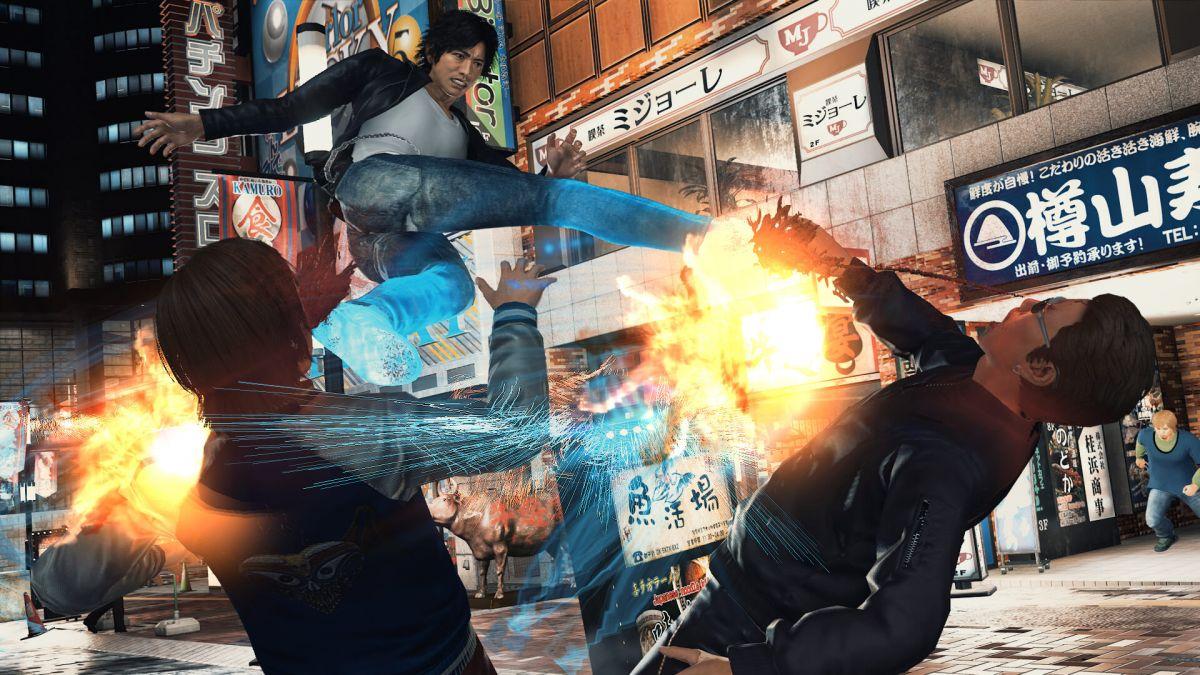
Not only is Judgment‘s combat an improvement, but navigating the streets of Kamurocho has been made much easier this time around. The game boasts a slew of quality of life features, the most noteworthy of which is the ability to mark a destination on the in-game map, something that was sorely needed in previous Yakuza games. Sprinting is now a toggle, so you don’t have to keep the X button held down constantly to get anywhere, a simple tap will suffice. These, combined with the seamless transitions into stores and combat thanks to the Dragon Engine, make Judgment the smoothest playing Yakuza experience to date.
It wouldn’t be a Yakuza game without a huge list of side content, and Judgment does not disappoint, delivering the greatest selection of minigames and side stories the series has offered to date. Kamurocho staples like the batting cages, arcades, and mahjong return, but some Yakuza favorites (like karaoke) are unfortunately absent this time around. The game more than makes up for this, however, as its new additions are more than welcome and stole hours of my time in between Judgment‘s more serious story beats.
Drone races are the first of Judgment‘s new minigames, and they’re analogous to the pocket car racing from Yakuza 0, only fleshed out to a greater degree. The drones are incredibly customizable, and you’ll get drone parts and customization items everywhere in Judgment, from shops to quest rewards. There are a surprising amount of varied tracks, and squeezing drones through tight indoor spaces or building speed in wide outdoor areas was way more entertaining than I thought it’d be. There’s even a pseudo online mode that lets you race against the times of other players from around the world. The minigame is as in-depth as you’d expect a flagship Yakuza minigame to be, and it never failed to be a good time. Judgment‘s other new big minigame is a VR board game that rewards you with money and items depending on which spaces you land on. This minigame can drag a bit, especially if you land on spaces that force you into combat, and I didn’t come back to it as much as the others. New boards and upgrades can be unlocked which helps to make playing through the minigame more rewarding, but the prizes and cash output were slim in comparison to other money-making outlets.
Side stories have been overhauled in Judgment. They now fall into two categories: side cases and friend events. Friend events are the more traditional Yakuza side stories. You’ll meet various people around town and speak with them whenever you pass by, progressing their storylines and increasing your city reputation level, which unlocks more activities, rewards, and side cases. Side cases are the meat of Judgment‘s side content. Since Yagami is a detective, he can pick up cases around Kamurocho to work on, and every single one of these is worthwhile and memorable. Some highlights include locating an escaped murderer with a 1.2 million yen prize on his head, which culminated in one of the toughest boss fights in Judgment. Another involved tracking down a stray cat that turned out to be at the center of a yakuza conspiracy, involving sword fights and drone combat. Side cases always felt worthwhile not just because of the storylines, but also the rewards, which can range from money to new abilities.
By completing certain friend events and side cases for some of the girls Yagami encounters, he can start to date them. Girlfriends are a new feature in Judgment, and they feel tacked on. They’re extensions of friend events and can be attained by reaching a certain point in a side character’s storyline. You can take these girls on dates, playing minigames, and choosing dialogue options to build an intimacy meter, but the new mechanics introduced don’t really serve a purpose or give any meaningful rewards. Dating as a whole in Judgment feels like a complete afterthought and a waste of time. It doesn’t even make much sense narratively either considering Yagami already has a love interest in the main plot.
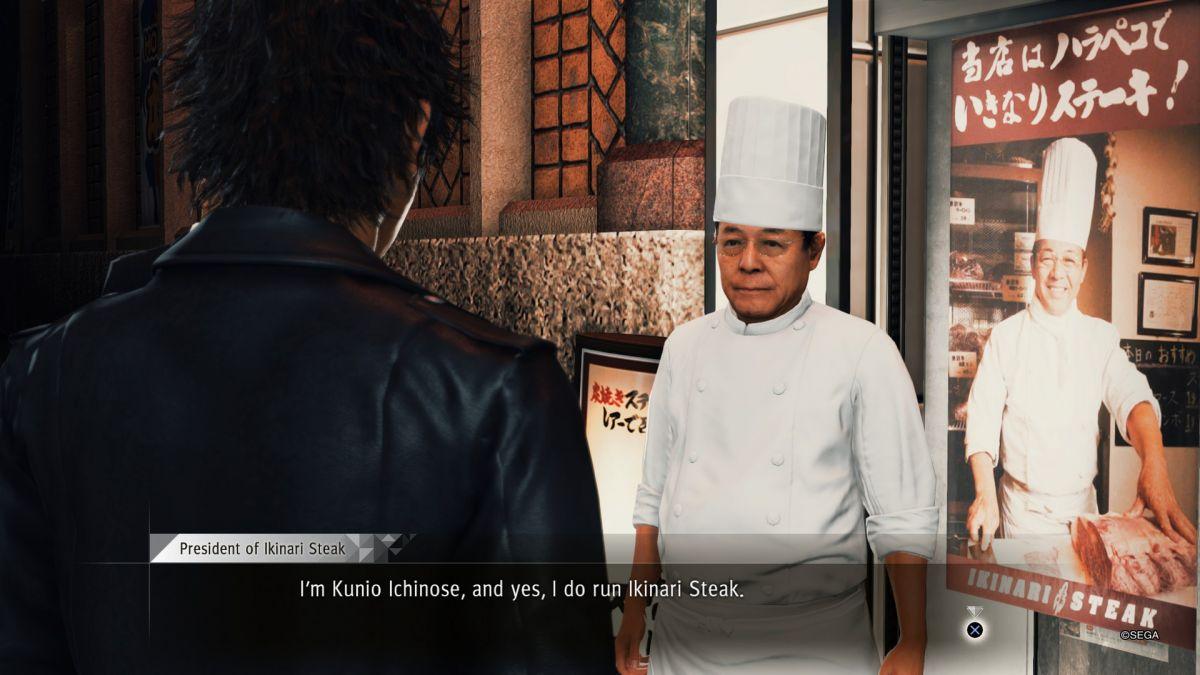
The main draw of Judgment is undoubtedly its story, and the main plot of the game manages to be mostly entertaining throughout its entire duration despite some shortcomings. The central mystery of Judgment is immediately intriguing, and as it gets more and more complex (in classic Yakuza fashion) I found myself dying to know more. A slow start prevents the central mystery from developing in any significant ways until a few chapters in, though. Also, the story loses focus at multiple times throughout, going off on tangents that feel irrelevant to the mystery at hand. There’s a lot of filler here, and while it’s entertaining for the most part, it felt really out of place in between Judgment‘s more serious moments. I found myself wondering what a scene’s relevance to the overarching plot was on numerous occasions, and some of the slower segments can absolutely drag.
Judgment has some very high highs, though, especially in its final act. Judgment is a slow burn like most Yakuza games, but I felt that it took a particularly long time to get going this time around, mostly due to how the first half of the game is primarily used to introduce players to the game’s cast. Judgment may be a Yakuza spinoff, but its cast is entirely original, no Yakuza characters make an appearance whatsoever. In the beginning, I struggled to connect with the game’s protagonist and the supporting cast, but after exploring their past and internal struggles throughout the story, I found myself liking them more and more. Judgment‘s narrative definitely gets better the longer you stick with it, it’s just unfortunate that it takes so long to really get going.
The game’s final act is excellent in every regard, and it’s worth trudging through the slower moments to get to it. It combines everything that the best Yakuza moments have like bombastic action sequences and intense boss battles with some of the best courtroom scenes in the entire game. The payoff is one hundred percent worth sticking around for, and the character moments and performances were incredibly emotional.
Judgment is also the first Yakuza game to feature both Japanese VO with English subtitles and a full English dub. I played half of the game in English and the other half in Japanese and the Japanese performances are much better than the English dub. That’s not to say the dub is awful, though. They’re surprisingly both very good. It’s just that the star-studded Japanese cast fits the characters better than the dub. Still, having the option is a nice benefit, and people who couldn’t get into Yakuza because there wasn’t an English dub can finally play one of these games in English with good performances.
Overall, the fresh faces are all likable, and now that I’ve completed all of Judgment‘s story, I feel the same way about the cast as I do about some of Yakuza‘s greatest. Yagami went from bland ex-lawyer to someone with actual values. His partner, Kaito, went from solely being comic relief to being a true friend and partner. Even the young Hoshino, who I initially found incredibly boring, became one of my favorite characters by the end. Judgment‘s characters truly evolve over the 30-hour storyline, and I can’t wait to see more of them.
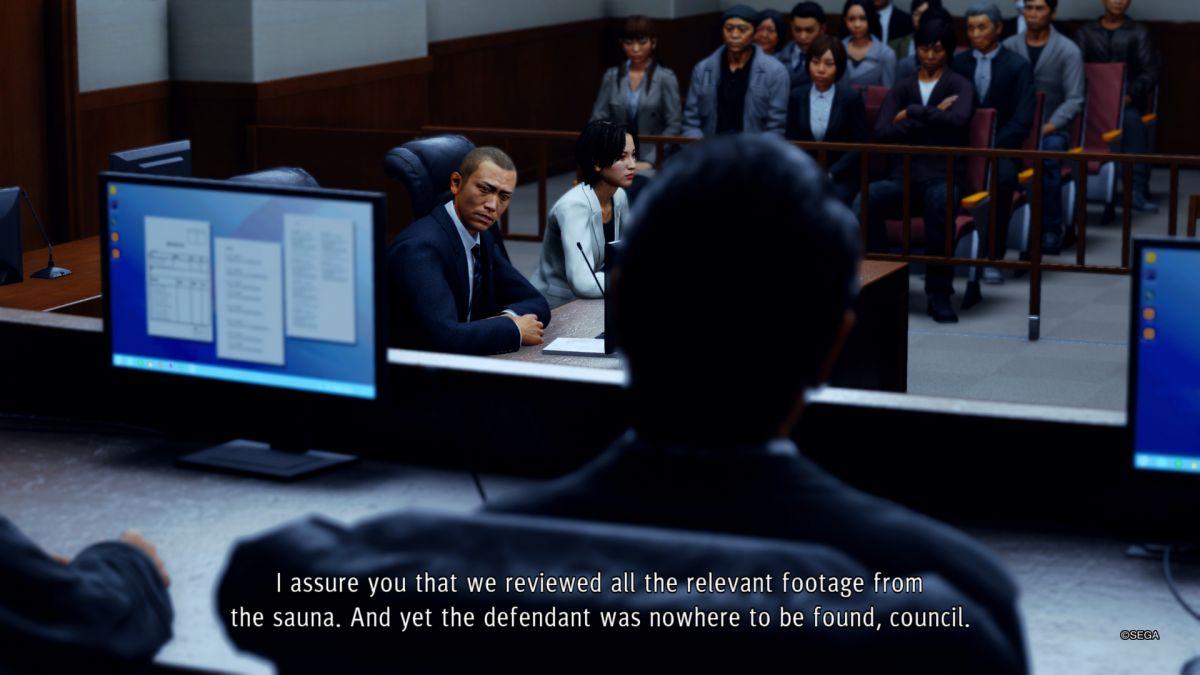
The characters aren’t the only thing that’s new in Judgment. A host of new gameplay features have been added to fit the game’s detective theme, but unfortunately, most of them fall flat. Tailing is the most significant new addition, and it involves Yagami following a target while remaining undetected, ducking behind cover if necessary. While this idea sounds interesting on paper, it stumbles in its execution. Tailing happens too frequently and the segments themselves are way too long. Targets move too slowly and are incredibly suspicious, constantly turning around and staring for what feels like ages at random intervals. What makes this worse is the game’s buggy AI, which especially becomes a problem in group tailing scenarios. Any time I had to tail a group, one member would get suspicious and pause, allowing the rest of the group to leave my line of sight, which triggered a countdown to a game over. I would be unable to catch up without being detected, though, because the one group member that lagged behind would spot me without fail. Tailing started out as a nice novelty, but it quickly became an exercise in frustration.
Investigation and dialogue options are the other major additions in Judgment. When gathering evidence, the camera will shift to a first-person perspective so you can scan the environment for clues. These moments don’t hinder the experience, but they don’t necessarily stand out, either. Every first-person investigation scene in the game has a hidden cat, though, so there’s that. Dialogue options don’t offer any radical changes to the story or character relationships but instead, serve as a way to let you test your detective skills. If you consecutively ask the right questions, you’ll get bonus experience points, which always felt like a nice touch. Even though it’s not a whole lot of experience, it’s a reward for actually paying attention to the narrative and trying your hardest to unravel the game’s toughest mysteries.
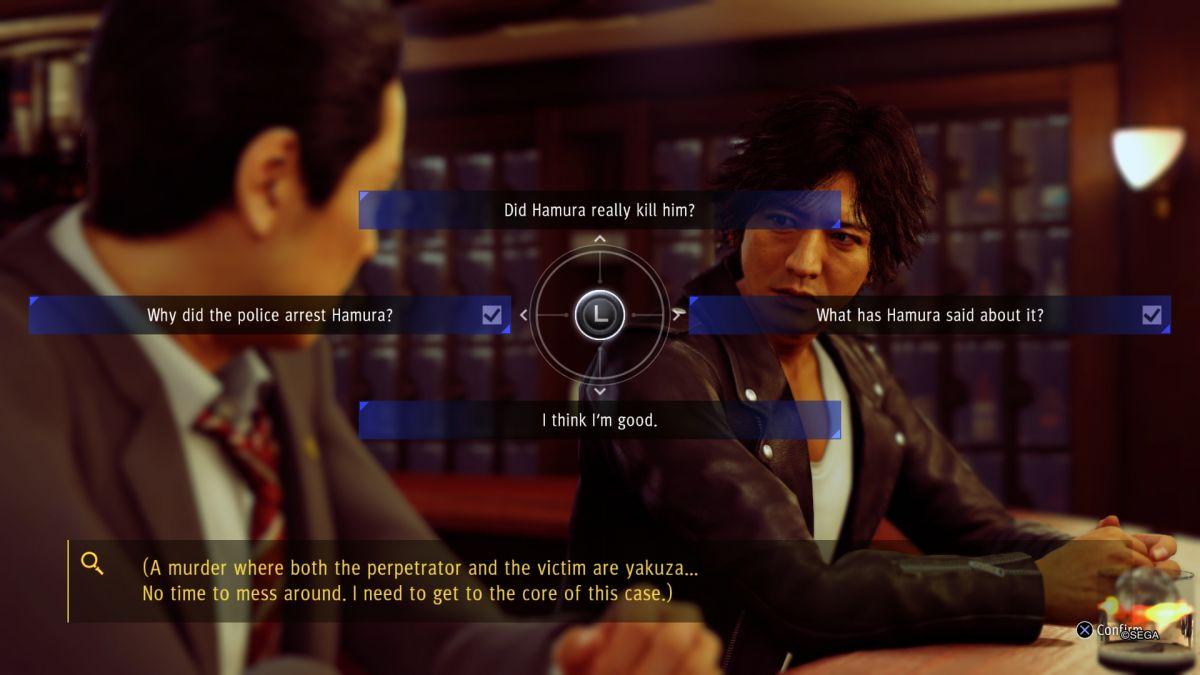
Despite its issues, Judgment proves that Yakuza can thrive without Kazuma Kiryu or Goro Majima. The narrative is gripping at its highest moments, but it can drag quite a bit in the first half of the game. Combat is the best it’s ever been in a Yakuza game. Having the most varied and interesting minigames of any Yakuza game is just the cherry on top of all of that. Even though the story can feel misguided at times, Judgment does a fine job of developing its characters and world, and I can’t wait to see many more adventures with this colorful new cast.
Review Disclosure Statement: Judgment was provided to us by Sega for review purposes. For more information on how we review video games and other media/technology, please go review our Review Guideline/Scoring Policy for more info.
Summary
Judgment is without a doubt the best playing Yakuza game to date. It has all of the quality of life improvements of the Dragon Engine alongside a host of new welcome features. The combat and minigames are the best they’ve ever been. The narrative is interesting overall, but can feel misguided and aimless at certain points.
Pros
- Great combat
- Likable characters
- Best minigames in the series
- Great sub/dub
- Intriguing central mystery
Cons
- Story sometimes loses focus
- Tailing segments
- Slow first act


